#especially doctors. sometimes I need to bring it up because it's relevant that I can't do x because I will faint if I try. and they always
Text
I'm pretty sure I can never let myself have any kind of surgery that isn't absolutely necessary ever again and it really kind of sucks
#I mean I'm having surgery on my eardrum next month... but that's such a short and simple procedure that it doesn't count#what I mean is - anything that involves having more than a tiny TINY wound/incision#anything that is enough to trigger my.. whatever the fuck this is. it feels like more than just anxiety.#and it's just.. so embarrassing?? people are so fucking awful about this kind of thing#especially doctors. sometimes I need to bring it up because it's relevant that I can't do x because I will faint if I try. and they always#act like that's so fucking silly and childish#as if this isn't bad enough without the stupid comments 😐#anyway I hate this and had kind of hoped it would be less severe now with the anxiety meds. but no there's been absolutely no change at all#which is upsetting.#why is medical stuff so fucking hard 😭#like I'm only in a very small amount of pain at this point and my brain still thinks my body is going to die if I even look at the#fucking bandages#from experience I know that won't go away for a while and it's so exhausting. so much worse than the pain#but!! all of it will be worth it if my gallbladder really was the cause of the pain attacks I had#I'd do anything so that I never have to experience that again#personal#tw surgery#tw medical
5 notes
·
View notes
Text
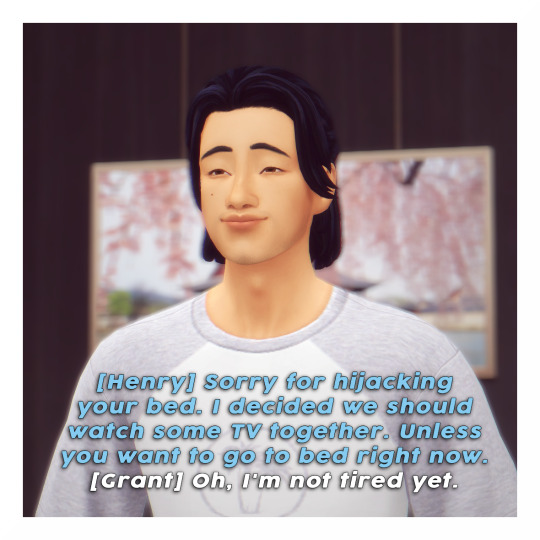
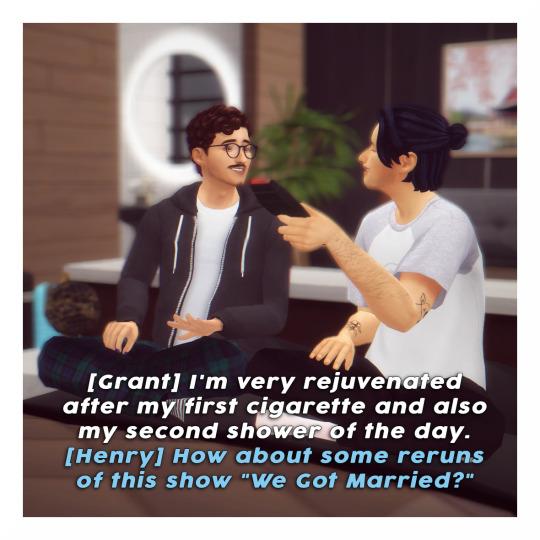

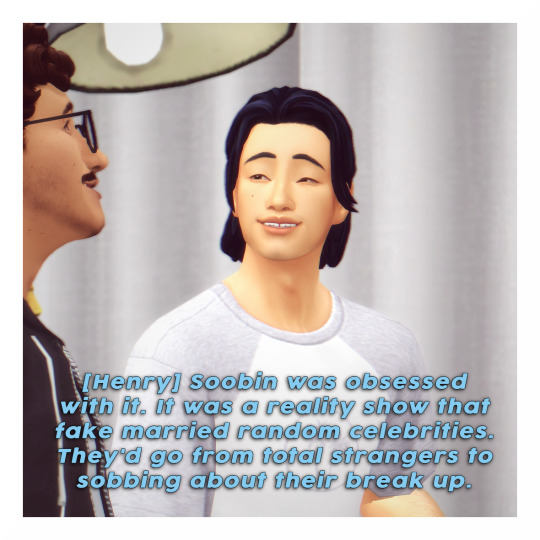

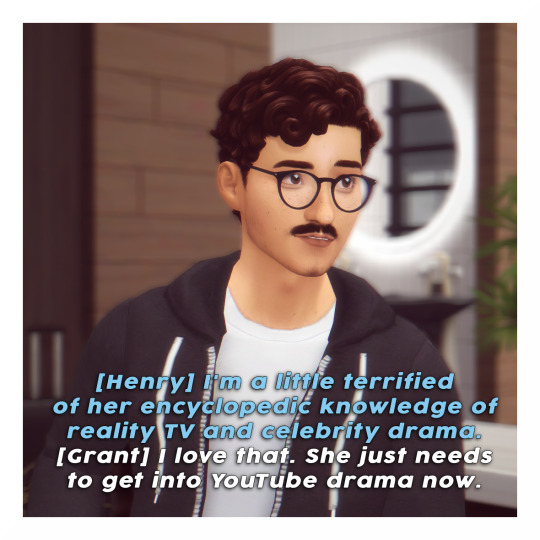

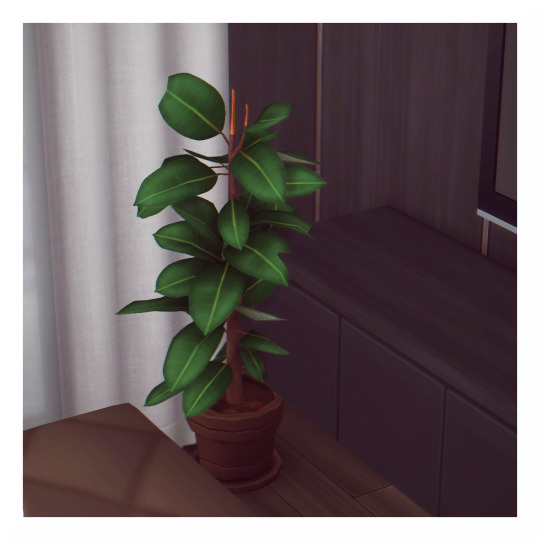


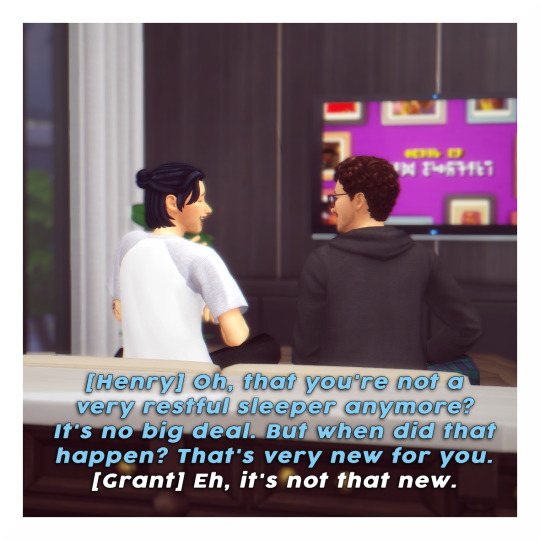



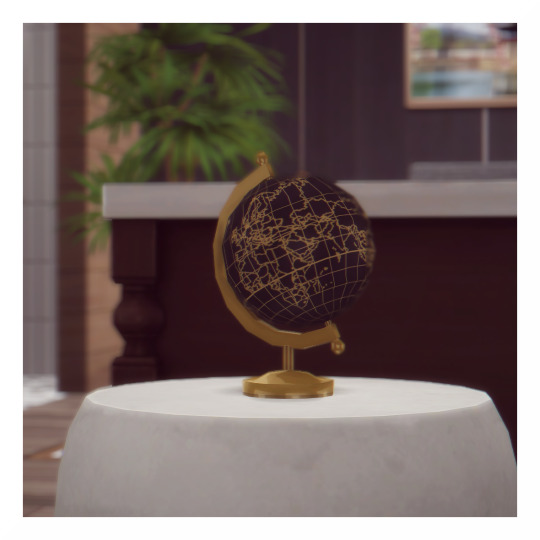
next // previous
august 17, 2021
1:30 a.m.
paradise hotel
[grant] it drove päivi insane and i just try to be considerate. like i've been dealing with this for years, but i'm very well aware it's not pleasant that i wake up sometimes because i'm pain and that when i do, i get up out of bed for a bit so i don't end up so stiff that i can't stand up at all in the morning.
[henry] shit, i didn't think about that. i'm sorry.
[grant] why are you apologizing? you didn't do anything wrong.
[henry] i don't know. because i feel great 24/7 and i'm privileged enough to forget that others don't?
[grant] well, that's not really your fault. it's not like i'm good at acknowledging being chronically ill in any overly serious way. honestly, it's just easier when people forget anyway!
[grant] talking about it is never not a little bit awkward.
[henry] yeah, i wasn't aware it was bad enough to interrupt your sleep.
[henry] i knew it was bad, you know? bad enough some doctor finally cared to figure out the mystery suffering and that it need surgical intervention, and i remember the exact day something first changed in you when we were kids, but that's about the end of my awareness.
[henry] man, you are also a chronic hider of information.
[grant] that's me! your hopefully favorite secret-keeper.
[grant] i don't mean to, like, keep you in the dark about this. it's not personal. especially not these days. i'm trying my best to be open. it's just...it's just awkward.
[grant] i've had enough bad responses to being sick in my lifetime that i just feel inclined to never mention it, you know?
[grant] have you tried yoga? have you tried CBD and essential oils? but you're young and look fine, you can't be sick, you're making this up! have you tried religion and cutting out all the ingredients like gluten and sugar that make food actually fun to consume? no, no, those things are poisoning you - haven't you read that gut health is the #1 cause of autoimmune disease? it's definitely not chronic stress plus your long family history of busted immune systems! check out this carnivore diet website, you totally won't get fatal heart disease from all that red meat and butter instead, bud!
[grant] or i get pity. or assumptions of what i can or cannot do.
[grant] you want to bash your head against the wall after a while. no one really gets it but they think they do.
[grant] not that you've ever done those things! or that i think you would! or that i think you don't get it! sorry, that was a lot. it just came out all at once. i think i have some insane pent up rage about this whole thing. but no, really, you're the same as my family; they don't respond badly either. i just, well, you know. again, forgetting unless it's relevant is probably preferable. i like it that way.
[grant] i don't want the awkwardness. or anyone to worry about me.
[henry] i wish you weren't afraid of telling me about all this.
[henry] you know everything about me. even the not very good parts. you're one of the only people i talk about having depression with and that's excruciating to bring up. people don't respond well to that either. maybe not with pity or assumptions but definitely obnoxious suggestions. sunshine and exercise do not fix me. lexapro and therapy sessions kind of.
[grant] and i'm glad you do! i do personally understand mental health issues, but even if i didn't, still, i'm glad you feel safe opening up to me about it. and i always want you to. and i'm always thinking about you and hoping you're doing well enough and if i can do anything–
[henry] oh, grant. you scramble my brains sometimes. that self-hating demon is still trapped inside you.
#ts4#the sims 4#sims 4#sims 4 story#sims 4 storytelling#simblr#hlcn: everything the stars promised#I PROMISE THEY'RE NOT ARGUING THEY ARE REALLY JUST CHILLING AND WATCHING TV#but it kind of reads like an argument jfdksjfkds they just have very different styles of communicating#like that one line from another post 'grant selectively speaks his mind and henry rarely minces words'#holocene.docx#holocene.png#hlcn: grant#hlcn: henry
37 notes
·
View notes
Note
Hey aelaer, I have a question and since you seem to have been writing fanfic forever, I think you're a good person to ask this. I have a crossover idea with Doctor Strange and another universe, but to my dismay someone has already written something similar (not the same universe). I did have my story plotted out already, but there's some key concepts that can't be avoided I don't know if I should give up. I don't want to be accused of plagiarism even if the story is completely different.
Hi, thanks for thinking of me for your question! I have a tendency to ramble (and I ended up writing an essay for this) so let me answer you immediately: yes, you should still write it.
Now the rest of the answer delves into the why, in entirely too much detail as I am wont to do.
According to plagiarism.org, Merriam Webster defines the following items as plagiarism:
to steal and pass off (the ideas or words of another) as one’s own
to use (another’s production) without crediting the source
to commit literary theft
to present as new and original an idea or product derived from an existing source
For instance, if I were to state that the above was my own words, I would be plagiarizing both Merriam Webster and plagiarism.org (which is just irony at its finest).
Figuring out how to avoid plagiarizing words is easy: don’t copy-paste words that aren’t yours and declare them as yours. Slight rewording of the content doesn’t keep it from being plagiarism, either. The issue of ideas, however, is a good deal more difficult to quantify, especially in the creative space.
The Office of Research Integrity starts off by giving us a base point of idea plagiarism with the sciences in the following statement:
“In the sciences, as in most other scholarly endeavors, ethical writing demands that any ideas, data, and conclusions borrowed from others and used as the foundation of one’s own contributions to the literature, be properly acknowledged. The specific manner in which we make such acknowledgement may vary depending on the context and even on the discipline, but it often takes the form of either a footnote or a reference citation.”
This makes sense. In many educational systems kids are taught to properly site sources for information, which extends to ideas within the scientific community. If you are building your thesis on cancer research upon the discoveries of other researchers, they need to be referenced and cited properly (and it builds credibility for your own studies).
But how does this apply to creative writing, or indeed any creative medium? Obviously you don’t see footnotes for every source of inspiration in popular fiction across creative media, and it’s not like magical schools are banned from fiction because JK Rowling wrote a series about such a place. How do the rules of plagiarism of ideas that have a clear guideline in formal writing adapt to the creative arts?
To answer this question I am first going to turn to the modern legal system. Every country has its own set of laws regarding the protection of original works and ideas, but for the sake of ease the following is based on US laws and definitions. If you’re interested in your own country’s specific laws (and how they differ from what is stated here) I recommend a quick Google search.
Copyright is a concept that puts some (but not all) acts of plagiarism into a legal liability. It came into form as the printing press (and printed works) became more popular, but has grown significantly over the past 150 years as new technology and new ways to distribute media have come into play. As Wikipedia succinctly summarizes, “In law, copyright is the exclusive right, given to the creator of a work, to reproduce the work, usually for a limited time. Copyright protects the original expression of an idea in the form of a creative work, but not the idea itself. A copyright is subject to limitations based on public interest considerations, such as the fairuse doctrine in the United States.” This is how parody and criticism are protected, for instance.
It’s important to note that copyright protects the specifics, but not the actual idea. For instance, Marvel (and thus, Disney) have the copyright to the story of Stephen Strange, the arrogant surgeon that had a terrible car crash and went to Kamar-Taj and learned the ways of the Mystic Arts. However, if someone were to write about Trevor Baker, the arrogant baseball player that lost his arm in a car accident and went to a secret society in Japan to learn magic to become a sorcerer, there is no copyright protection. The idea is the same (and perhaps plagiarized), but there is enough difference to make it its own work.
You may note that, under that copyright definition and the current state of US law, all fanfiction are copyright infringements. Alongside that, all fanfiction can be considered a plagiarism of ideas in the eyes of some original creators. However, you’ll find that most authors, studios, and creative organizations are tolerant and sometimes encouraging of fanfiction and other fan-derived works so long as it’s not done for profit and clearly stated to be a fan-derived work (one time commissionsseem to be a grey area that most seem okay with, but something like art prints of copyrighted or trademarked characters is not something I’ve found definite rules for, and I imagine that it is also on a case by case basis; publishing written fanfiction works widely for profit is a big no for most creators). For more on this subject and how fan-derived works have fared legally, take a look at this wiki article, which mostly looks at cases within the United States but is still an interesting read. For more details about specific cases you can go to the sources linked.
You’ll note that, since copyright law does not protect ideas, that it doesn’t really fall into the scenario prompted in the original ask. The reason I bring up copyright is that it is important to recognize the differences between copyright and plagiarism.
I think Sara F Hawkins (an actual attorney, unlike me) states it best in her article about it. She has a whole list of the differences between copyright and plagiarism, but I think for the sake of this topic, this point is especially relevant to us: “Plagiarism is a violation of moral, ethical, or organization norms not laws.”
So let’s look at this case from those three viewpoints (for the sake of ease, I am using this definition to show the difference between ethics and morals. I don’t know if it’s right, but it’s useful).
Moral: The plagiarism of ideas and where it stands on a moral ground really varies from person to person. For instance, one may accuse me of plagiarizing @amethyst-noir‘s ideas with the embellished or different spins on the prompts and asks received in her inbox. However, my moral stance would be that this falls into inspiration rather than plagiarism because there is enough of my own work within these prompts. This is a stronger argument as I also have her full support (as well as the support of a couple of the anons), but even if I didn’t, I think that if you put enough of your own spin onto the base of an idea, you craft it enough to make it your own. Many, many stories follow the same general plot lines and tropes; that does not mean they are all plagiarizing each other. Furthermore, the original ask makes it sound like you, anon, did not know this story existed after crafting the outline, making the argument null. How can you plagiarize something you did not know existed? You can’t, not from a moral standpoint.
Ethical: Unfortunately this one is a bit harder and the one you seem most concerned about. There is no one culture amongst the fan fiction community, and even every fandom has its own set of different communities with their own sets of norms, leaving this not entirely possible to predict. Instead I would rather critically examine the key plot points that are the same as this writer and figure out if they are relatively common tropes or entirely too specific to each other. For instance, if there’s a kidnapping, that’s in half the fiction out there. It’s way too broad a trope to be considered an idea one can really plagiarize. However, if both your story and theirs feature a kidnapping of the same character in the same spot with the same method after a very similar series of events, then there may be more people that see the similarities between them.If you want to take precaution against overzealous fans of the other work, upon publication of your own story, you can outright mention that you found a work similar to yours well after beginning your story and that any similarities are unintentional, with a link and a positive plug to the story in particular. You could even reach out to the author themselves before publishing, but I don’t think this is necessary, especially since you are crossing over a wholly different world (which already distinguishes itself as a different piece of work in regards to the base idea in most cases).
Organization: The authority on transformative works is usually considered to be AO3. AO3 would not pull a work for very similar ideas; if that were the case, the hurt/comfort, chatroom, and E-rating categories would be much, much smaller than they are now. So no worries on that end.
I cannot predict the behavior of your reviewers, anon, and without specifics I cannot say how similar your work is to this work already published, but I hope that everything I outlined above gives you an idea of where to go from here.
I am going to end this essay of an answer with something I found in my research on this subject. I came across this fantastic article by a Jonathan Bailey about the plagiarism of ideas and how they apply in US patent law (unlike copyright law, you can patent ideas), and what it would mean for the creative space if they were applied similarly. I recommend reading the whole article, but this passage especially stood out to me:
The best thing that we can do is realize that, in the eyes of the law, the value of a creative work is in its execution, not the idea behind it. As such, we have to take it upon ourselves not only to be original, but to carry out our visions the best possible way.
I think that should be a mantra everyone working with both original and derivative works should take to heart. Supposedly every story has already been told, so we may as well just tell the stories with our own spin, in our own words, and our own specific ideas that make them distinctly ours. That is how we make them unique and memorable.
21 notes
·
View notes